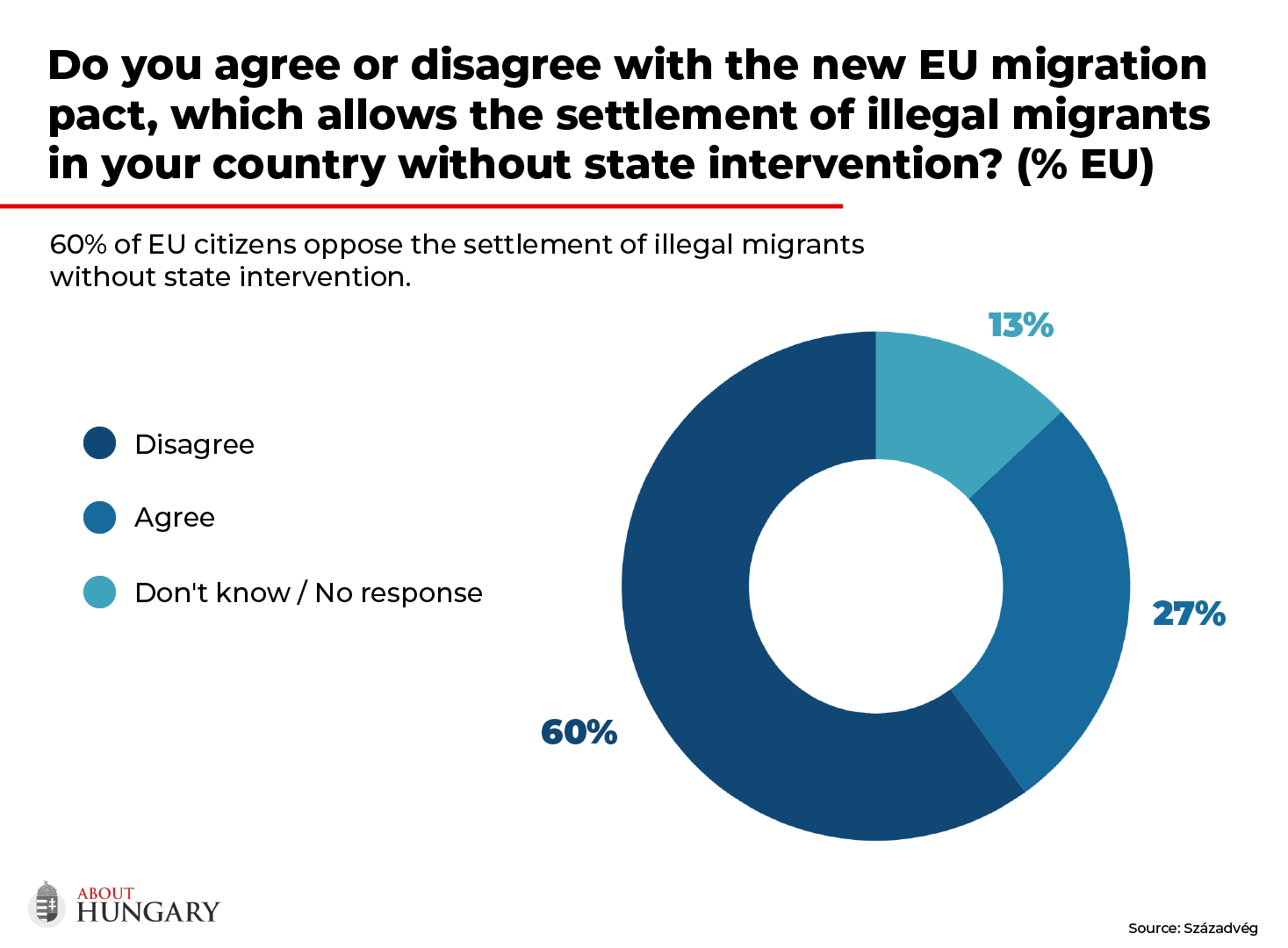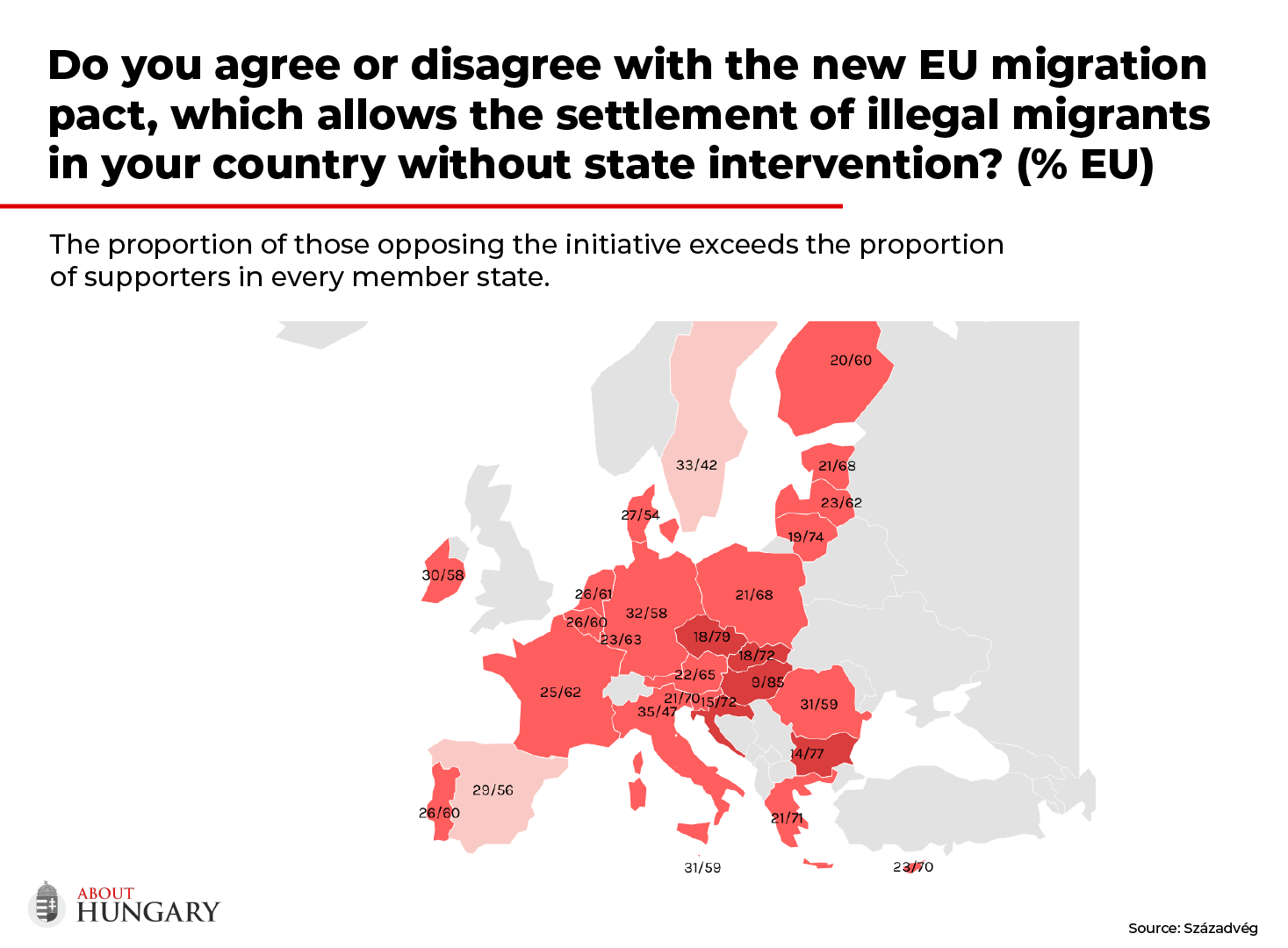Since the 2015 immigration wave, the European Union has repeatedly tried to impose mandatory legal frameworks on member states to participate in the distribution and acceptance of migrants. However, these plans have faced resistance from member states and have divided European public opinion. After nearly a decade, the EU has adopted a new migration pact that permits the relocation of illegal immigrants into member states.
Despite the Hungarian government's firm opposition to settling foreign populations on its territory, Brussels continues to exert pressure. The adoption of the migration pact has reignited these efforts. Due to the significant security implications of immigration into the EU, Századvég surveyed European citizens' opinions on this measure.
The survey results indicate that 60 percent of the EU population opposes the new migration pact that enables the relocation of illegal migrants without state-level consent. Only 27 percent of respondents support the measure.


